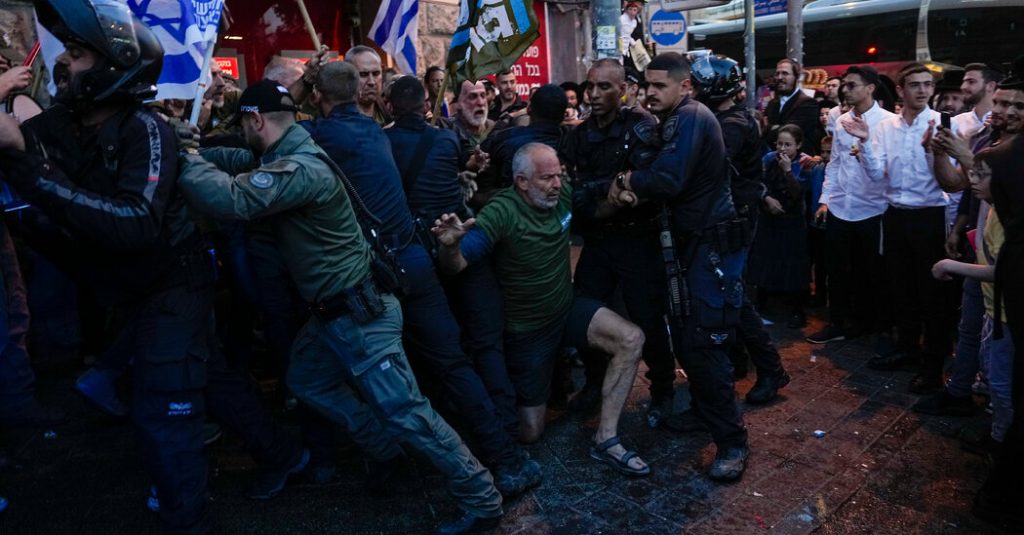Prime Minister Benjamin Netanyahu of Israel faced mounting challenges to his leadership as demonstrations calling for early elections took place outside Parliament. Thousands gathered in what was one of the largest protests against the government since the start of the war in Gaza. Protesters demanded Netanyahu’s immediate removal and elections, expressing dissatisfaction with the government’s handling of the conflict. The protests coincided with in-person talks in Cairo concerning a possible cease-fire and the release of hostages held by Hamas militants in Gaza.
The protests in Jerusalem drew attention to criticism of Netanyahu’s leadership, both domestically and internationally. There has been pressure to prioritize the release of Israeli hostages held by Hamas as part of a cease-fire deal. Critics have called for Netanyahu to take responsibility for the situation and prioritize the well-being of the nation over political considerations. The Prime Minister met with families of soldiers held in Gaza and underwent surgery for a hernia amid growing calls for his resignation.
Netanyahu has faced criticism for his approach to the war in Gaza, with concerns raised about civilian casualties and access to aid in the region. The ongoing conflict has strained relations with close allies such as the United States. The government’s response to the situation has stirred unrest among Israelis, leading to protests and calls for a lasting cease-fire. Pressure has been mounting on Netanyahu from various fronts, including a dispute over a bill to extend ultra-Orthodox Jews’ exemption from military service, which could jeopardize the stability of his coalition government.
As the war in Gaza continues, calls for a cease-fire have intensified, with Pope Francis adding his voice to the plea for humanitarian aid and the release of hostages. Questions surrounding the terms of a possible cease-fire, including the return of displaced Gazans and an Israeli withdrawal from Gaza, have complicated negotiations. Talks between Israel and Hamas have stalled over key issues, including the conditions for Palestinians to return to their homes and the distribution of humanitarian aid.
Humanitarian officials have warned of a looming famine in Gaza without a cease-fire to allow for sufficient aid delivery. The war has taken a heavy toll on both Palestinians and Israelis, with thousands killed and many more facing displacement and hunger. Mediators like Egypt, Qatar, and the United States have attempted to broker agreements between the conflicting parties, but a viable solution has remained elusive. The situation in Gaza highlights the urgency of reaching a sustainable cease-fire to address the humanitarian crisis and pave the way for lasting peace in the region.


